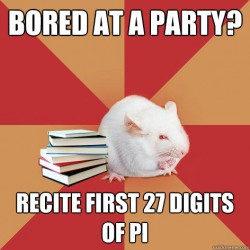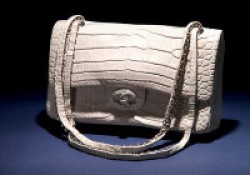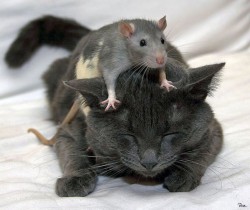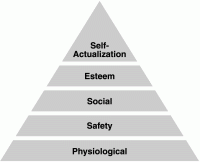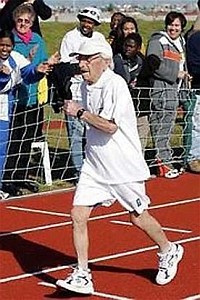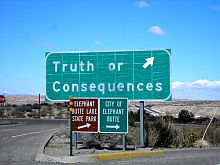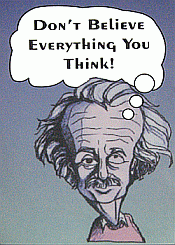When combined with hyper-sensitivity the results can be painful.
In fact, they can almost be self-defeating. . .
Sensory overload of bliss

A glorious invitation to blend into sea, sand and sky
Sunday morning, early.
The sky was the translucent watercolor blue of the northern hemisphere. The air was cool and clean.
I ran down to the beach. Bournemouth beach. Much vaunted as one of Europe’s finest.
The sea was doing its seductive thing, winking at me as its waves broke softly along eight miles of fine beige sand.
I headed into the rising sun and settled into my steady-state pace, relaxing into the soft embrace of the moment.
I was in bliss.
Sensory overload of despair

Some people can't get off the ground until they've finished yesterday's latte.
Then I noticed that someone had pushed over a wheelie bin, put there to hold the trash of thousands of visitors.
The garbage, strewn over the promenade and the sand, was being picked over by the seagulls who seemed to delight in the poisonous residue of take-away meals and beer cans.
Despite their millions of years on the planet the birds seem to have forgotten the virtues of the paleolithic diet. Ketchup and kebabs prevailed.
I ran on and realised that the next bin had been turned over. And the one after that. In all I counted 32 large garbage containers whose contents had been redistributed overnight.
It hurt to see it. My hyper-sensitive gifted awareness triggered such a powerful spasm of despair that I stumbled and almost stopped running. This was too awful. Humanity is too awful. Our future is hopeless. The planet is doomed. Etc Etc.
Gifted scorn and self-realization
But I kicked on and my despair turned into anger and contempt.

A minor insult to the planet - and to themselves
What kinds of animals would do this?
Where were the police? In my day (yes, I did find myself thinking it) there were bobbies who’d included the beach on their beat.
And how did I know this? Mmm. Bit hard to admit it but . . . it was because I once had to watch out for them as we lads worked off our overdoses of testosterone on the beachfront in North Kent. Swinging from lamposts; clambering over benches; shouting raucously into the night.
I don’t remember turning over any litter bins, though. Come to think of it, I don’t think there were any . . .
Gifted rationalization
But that was then and this is now and as the metres stretched away behind my padding feet I moved beyond my anger into a place of philosophy.

Trash on the surface. Rich soil, perhaps, beneath.
This, after all, was only surface trash. The sand and planet underneath it were undamaged – broadly speaking – and everything has scum on the top: the sea, the banks, the political parties – why, what we have here is a repeating characteristic of nature.
Scum floats on the top. And everything creates its own form of scum.
That was very comforting. The trash was nothing to worry about. Just a natural process that nature has been supporting for billions of years.
My tension eased and I extended my step slightly . . .
Gifted insight
I turned round at Hengistbury Head, a sandy peninsula whose name I find irresistibly romantic.
Perhaps my ancestors arrived with Hengist and Horsa from mainland Europe in the fifth century. I feel the place alive with hairy men, short and broad, clad in what today we would call all-natural organic wool dresses.

The way home from Hengistbury Head
With the sun now behind me, the wind was full in my face. It kept strengthening as the land warmed and drew the sea breeze ashore. I had to increase my effort to maintain my pace. But I was cheerful. I was halfway there. My legs were strong.
I ran on.
Past the man allowing his labrador to defecate in the sand;
overtaking the couple clouding the fresh morning air with cigarette smoke;
sidestepping to avoid the styrofoam cups being thrown out of a camper van as its occupants finished breakfast.
And as I started to turn sour again I suffered an irresistible realization: this was all about me.
Gifted self-questioning
I couldn’t resist asking myself: How was it that I was only noticing the garbage?
How could I ignore the hawk circling above my head, seeking the voles that live in the scrubby slope of the east cliff? Or the dazzling beauty of the sun igniting the white cliffs of Purbeck as they rose from an indigo sea seven miles away?

"Let he who is without Macsin throw the first cup."
The answer? Partly, it’s to do with being gifted, highly sensitive and a perfectionist. It’s true that this rubbish is damaging for all of us and that the attitude behind it is even more damaging. So it’s natural to be resentful of it.
But I also had to admit that it’s mostly to do with me. That was the clue to the intensity of my response. What I was seeing was a snapshot of how I feel, in part, about myself.
I realised that I, in all my human superiority, am an object of nature. Which means – er, hmm – that I must have a layer of scum, too.
It seems I’m tarnished, just like everyone else.
But am I a scumball or just a little tacky?
And what is my scum?
Gifted surface irritation
I immediately thought of the sweat gently soaking into my running vest. But that seemed too obvious and too natural and desirable to trigger such a depth of loathing.
So I opened the door to all the psychospiritual scum that felt as hopeless and as unforgiveable to me as tossing a litter bin onto a beach.
My stained and shudderworthy debris included:
- Failures of integrity
- Acts of expediency
- Times of excess – food, drink, wildness
- Thoughts of hostility
- Paralysing guilt
- Bullying, forcing, disregarding others’ needs
- Neglect of self, of other
- Failures of compassion
- Agonising shame and self-contempt
Gifted litter-gathering
Gee! If I could shed that lot by dumping a load of garbage on a beach I’d be on my way to do it right now.
So maybe the villains of the night knew something that I didn’t. Maybe we can act out self-absolution by passing on our sins to others to clear up.
Maybe. But I still don’t think I could bring myself to do it.

Not all gifted but certainly clean at the beach. The most people ever under one shower.
As I came back onto the part of the promenade that I had left over an hour earlier, I noticed that the wheelie bins were once again upright and returned to their steel-pipe ‘nests’.
The garbage was mostly gone.
There was a group of half a dozen wo/men clearing the remaining residue from beach and prom.
I was glad to see them and wanted to say thank you for taking that job. Then I figured it might seem a little haut-seigneurial so kept my words to myself.
In any case, I thought, it seemed a pretty rewarding job. Out in the early morning on the beach, improving the world for the thousands who would arrive later.
I just wished they’d wear gloves . . . .
Don’t reinfect yourself
And so it is with us. When we seek to rid ourselves of the scum of ‘things we’re not proud of’ we need to wear gloves.
Or we simply recorrupt ourselves.

It's easy to protect yourself from the risk of reinfection
Cursing myself for my moral failures is a moral failure in itself. Scorning myself for contempting on others is to nourish contempt. Hating myself for failures to love is to force love further away.
Moreover, all these things foster a seed-bed from which further abuses will arise.
The answer is simply to let it go and begin again.
That’s the natural way.
Gifted re-creation
Each moment we are renewed.
Each day, 100 billion blood cells alone are replaced in our bodies. In beach terms, that’s a lot of styrofoam cups. Or a lot of jolts of self-contempt.
Being gifted and demanding, we tend to be pretty unforgiving of ourselves but if we could truly let go of yesterday and start each day afresh, we would see that we are as clean as Bournemouth’s Blue Flag beach.
Gifted day a-dawning
Jerome Kern and Dorothy Fields knew the value of moving on when they wrote:
“Nothing’s impossible, I have found.
For when my chin is on the ground,
I pick myself up, dust myself off,
Start all over again.”
You can achieve this simply by framing your own renewal affirmation and repeating it every morning on waking.
Something like: “I am wholly new. The universe is wholly new.”
It’s true. Yesterday is just a fictional memory and counts for nothing today.
And if you’re feeling energetic and want to dance it, here’s how:
Gifted perfectionists rejoice!
Wouldn’t you love to leave a room like that?











